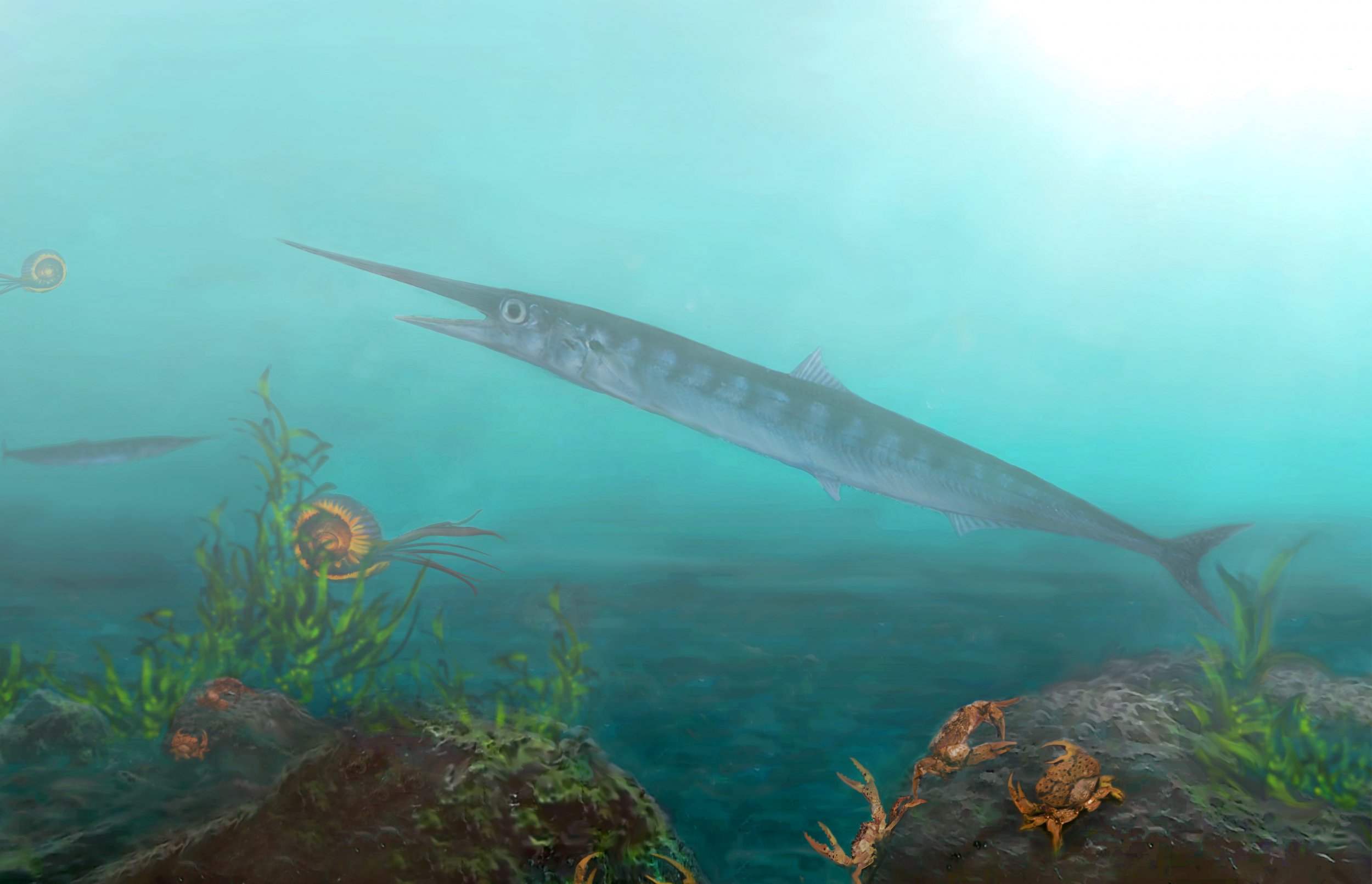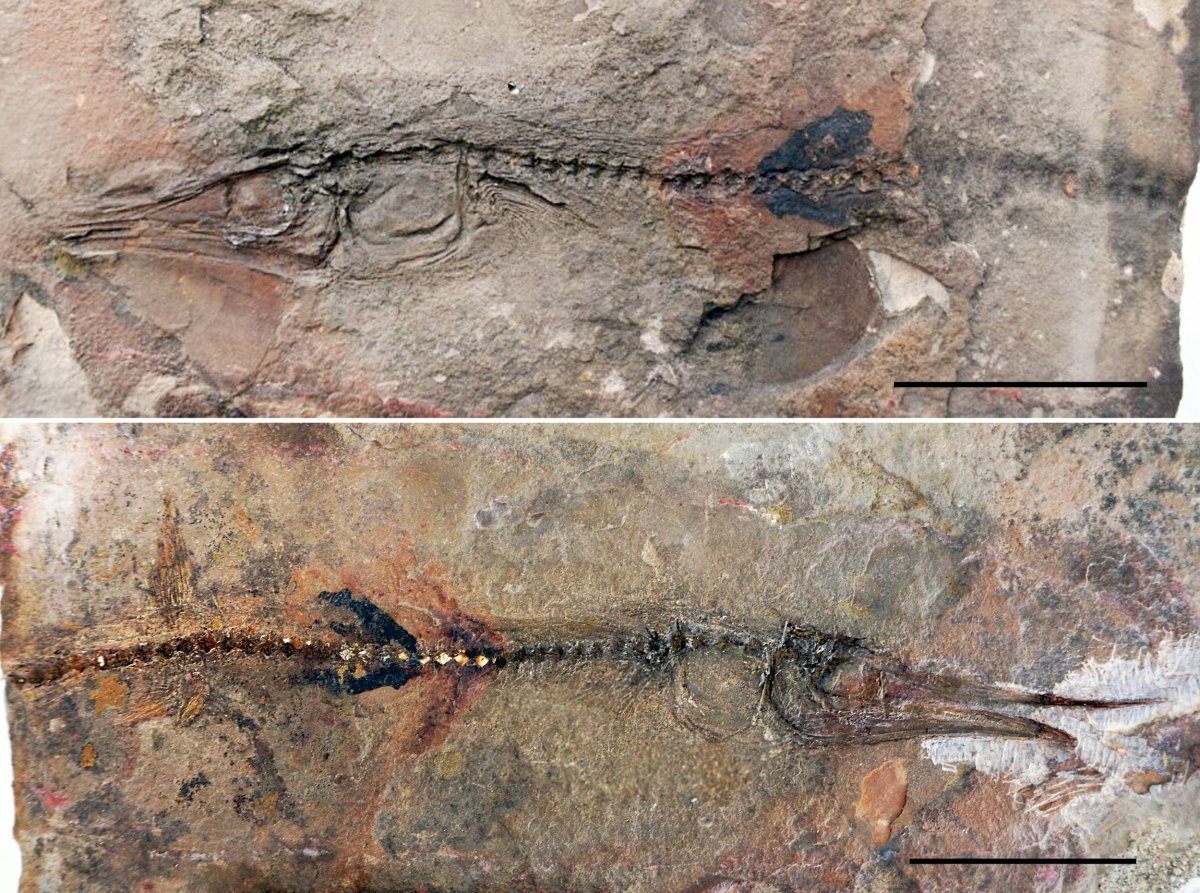
A curiously fish-shaped design that caught the eye of one small tourist turned out to be a rare "lizard fish" fossil from the Cretaceous period.
While taking a tour of the Monastery of La Candelaria, situated near the town of Ráquira Boyacá, Colombia, a young boy noticed a fish shape embedded in the flagstones on which he was walking, according to a press release from the University of Alberta. He took a photo, and later showed it to staff of the local museum, Centro de Investigaciones Paleontologicas.

Excited by what the photo appeared to show, the staff shared the image with paleontologists from the University of Alberta, who identified the fossil as Candelarhynchus padillai—a 90-million-year-old species of fish with no modern relatives. It does, however, bear some resemblance to a barracuda (or a lizard) with a slender body and long jaw, according to Atlas Obscura. This is the first time it's ever been seen in tropical South America. A paper describing the research was published in the Journal of Systematic Paleontology.
"It tells us that there is this still-unknown diversity of creatures that lived millions (of) years ago that we have no idea of," lead author Oksana Vernygora, a Ph.D. student in the University of Alberta's Department of Biological Sciences, told Newsweek over email. "Everyone now knows that tropical region around the world has the highest diversity of species, but we have very little knowledge of how diverse the tropics were in the mid- and late-Cretaceous. Discoveries like our fossil fish tell us that the tropics were full of life and diversity even millions of years ago."
The find was a "once-in-a-lifetime discovery," co-author Javier Luque, also an Alberta Ph.D. candidate, said according to CBC News. Vernygora told the University of Alberta that deepwater fish in particular are difficult to recover, and that to find a complete fossil of a fish like this still intact is "amazing."
She also emphasized that this discovery could help us track how the fish has changed physiologically in response to changes in their surroundings over time—particularly as that relates to climate change—which could help us predict how such changes might unfold in the future. It may also shed some light on this particular region of tropical South America, and how different organisms responded to its especially lush environment.
"The tropics today are bursting in diversity, yet we know very little about tropical biodiversity in the past," Luque told Newsweek over email. "Colombia is a good example. It is one of the most mega-diverse countries in the world, and yet (it's) only until a few decades ago that we have started to understand the importance of its fossil record. Every new discovery fills an important part of the puzzle."
Uncommon Knowledge
Newsweek is committed to challenging conventional wisdom and finding connections in the search for common ground.
Newsweek is committed to challenging conventional wisdom and finding connections in the search for common ground.
About the writer
Kastalia Medrano is a Manhattan-based journalist whose writing has appeared at outlets like Pacific Standard, VICE, National Geographic, the Paris Review Daily, ... Read more
To read how Newsweek uses AI as a newsroom tool, Click here.








